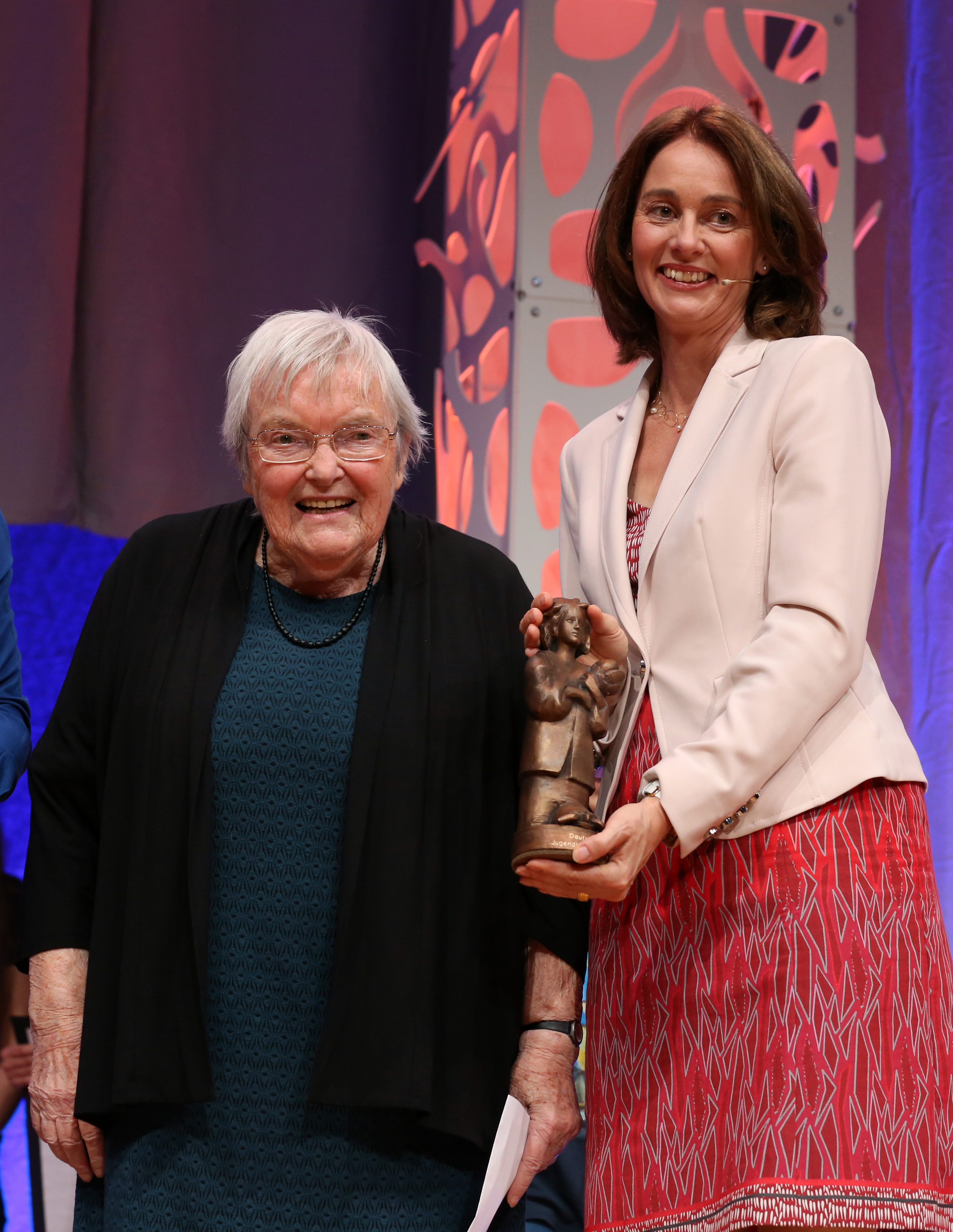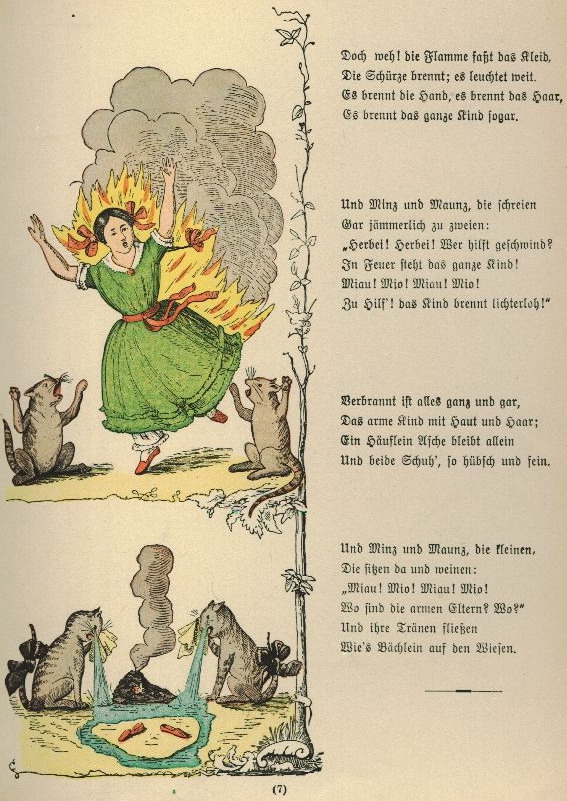|
The Last Children Of Schewenborn
''The Last Children of Schewenborn'' (German: ''Die letzten Kinder von Schewenborn'') is a 1983 novel by Gudrun Pausewang, depicting life in rural Germany in the aftermath of a nuclear war. While the story is entirely fictional, Pausewang confirmed in the book's epilogue that she created its main setting, the small town of Schewenborn, in the image of Schlitz in East Hesse, where she herself used to live. Plot summary The plot is set within the framework of a Cold War scenario very similar to the geopolitical situation at the time of writing. It is told from the perspective of Roland, a 12-year-old boy from Bonames (a district of Frankfurt), who travels with his parents and sisters to visit his grandparents in Schewenborn. During their journey, they are surprised by a nuclear attack. As emergency response systems fail to activate and no humanitarian aid reaches them, the survivors have to assume that the whole of Germany, or even the entire civilized world, may have been destro ... [...More Info...] [...Related Items...] OR: [Wikipedia] [Google] [Baidu] |
Gudrun Pausewang
Gudrun Pausewang (3 March 1928 – 23 January 2020), less commonly known by her married name, Gudrun Wilcke, was a German author of children's and young adult literature. She was known for books such as ''The Last Children of Schewenborn'' and ''Die Wolke'' (''The Cloud'', translated in the English book title as ''Fall-Out'') which were made part of German school canons. Among her primary topics were work for peace and protection of the environment, namely warning of the alleged dangers of nuclear energy. Her books have been translated into English and received international recognition and awards. Biography Pausewang was born in Wichstadtl (now Mladkov), Eastern Bohemia, a member of the German minority in Czechoslovakia. Her father was Siegfried Pausewang, and she was the eldest of six siblings. After the Nazis annexed the area, she became a Jungmädel at age 10 and remained in the organisation until age 17. Her father died in World War II, and her mother fled with the child ... [...More Info...] [...Related Items...] OR: [Wikipedia] [Google] [Baidu] |
Cautionary Tale
A cautionary tale is a tale told in folklore to warn its listener of a danger. There are three essential parts to a cautionary tale, though they can be introduced in a large variety of ways. First, a taboo or prohibition is stated: some act, location, or thing is said to be dangerous. Then, the narrative itself is told: someone disregarded the warning and performed the forbidden act. Finally, the violator comes to an unpleasant fate, which is frequently related in expansive and grisly detail. Cautionary tales and conformity Cautionary tales are ubiquitous in popular culture; many urban legends are framed as cautionary tales: from the lover's lane haunted by a hook-handed murderer to the tale of a man who shot a cactus for fun only to die when the plant toppled onto him. Like horror fiction, generally the cautionary tale exhibits an ambivalent attitude towards social taboos. The narrator of a cautionary tale is momentarily excused from the ordinary demands of etiquette that di ... [...More Info...] [...Related Items...] OR: [Wikipedia] [Google] [Baidu] |
Children's Science Fiction Novels
A child ( : children) is a human being between the stages of birth and puberty, or between the developmental period of infancy and puberty. The legal definition of ''child'' generally refers to a minor, otherwise known as a person younger than the age of majority. Children generally have fewer rights and responsibilities than adults. They are classed as unable to make serious decisions. ''Child'' may also describe a relationship with a parent (such as sons and daughters of any age) or, metaphorically, an authority figure, or signify group membership in a clan, tribe, or religion; it can also signify being strongly affected by a specific time, place, or circumstance, as in "a child of nature" or "a child of the Sixties." Biological, legal and social definitions In the biological sciences, a child is usually defined as a person between birth and puberty, or between the developmental period of infancy and puberty. Legally, the term ''child'' may refer to anyone below th ... [...More Info...] [...Related Items...] OR: [Wikipedia] [Google] [Baidu] |
German Children's Novels
German(s) may refer to: * Germany (of or related to) **Germania (historical use) * Germans, citizens of Germany, people of German ancestry, or native speakers of the German language ** For citizens of Germany, see also German nationality law **Germanic peoples (Roman times) * German language **any of the Germanic languages * German cuisine, traditional foods of Germany People * German (given name) * German (surname) * Germán, a Spanish name Places * German (parish), Isle of Man * German, Albania, or Gërmej * German, Bulgaria * German, Iran * German, North Macedonia * German, New York, U.S. * Agios Germanos, Greece Other uses * German (mythology), a South Slavic mythological being * Germans (band), a Canadian rock band * "German" (song), a 2019 song by No Money Enterprise * ''The German'', a 2008 short film * "The Germans", an episode of ''Fawlty Towers'' * ''The German'', a nickname for Congolese rebel André Kisase Ngandu See also * Germanic (other) * Germa ... [...More Info...] [...Related Items...] OR: [Wikipedia] [Google] [Baidu] |
German Science Fiction Novels
German(s) may refer to: * Germany (of or related to) **Germania (historical use) * Germans, citizens of Germany, people of German ancestry, or native speakers of the German language ** For citizens of Germany, see also German nationality law **Germanic peoples (Roman times) * German language **any of the Germanic languages * German cuisine, traditional foods of Germany People * German (given name) * German (surname) * Germán, a Spanish name Places * German (parish), Isle of Man * German, Albania, or Gërmej * German, Bulgaria * German, Iran * German, North Macedonia * German, New York, U.S. * Agios Germanos, Greece Other uses * German (mythology), a South Slavic mythological being * Germans (band), a Canadian rock band * "German" (song), a 2019 song by No Money Enterprise * ''The German'', a 2008 short film * "The Germans", an episode of ''Fawlty Towers'' * ''The German'', a nickname for Congolese rebel André Kisase Ngandu See also * Germanic (other) * Germa ... [...More Info...] [...Related Items...] OR: [Wikipedia] [Google] [Baidu] |
1983 German Novels
The year 1983 saw both the official beginning of the Internet and the first mobile cellular telephone call. Events January * January 1 – The migration of the ARPANET to TCP/IP is officially completed (this is considered to be the beginning of the true Internet). * January 24 – Twenty-five members of the Red Brigades are sentenced to life imprisonment for the 1978 murder of Italian politician Aldo Moro. * January 25 ** High-ranking Nazi war criminal Klaus Barbie is arrested in Bolivia. ** IRAS is launched from Vandenberg AFB, to conduct the world's first all-sky infrared survey from space. February * February 2 – Giovanni Vigliotto goes on trial on charges of polygamy involving 105 women. * February 3 – Prime Minister of Australia Malcolm Fraser is granted a double dissolution of both houses of parliament, for elections on March 5, 1983. As Fraser is being granted the dissolution, Bill Hayden resigns as leader of the Australian Labor Party, and in the subsequent lead ... [...More Info...] [...Related Items...] OR: [Wikipedia] [Google] [Baidu] |



